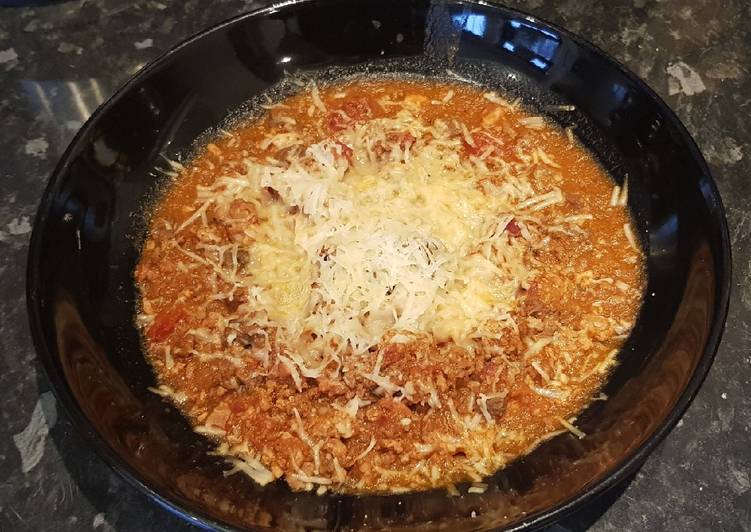Hey everyone, welcome to my recipe site, If you're looking for recipes idea to cook today, look no further! We provide you only the best Tamarind rice [ Puliyogare ] recipe here. We also have wide variety of recipes to try.
![Tamarind rice [ Puliyogare ]](https://img-global.cpcdn.com/recipes/065448e7462ed720/751x532cq70/tamarind-rice-puliyogare-recipe-main-photo.jpg)
Before you jump to Tamarind rice [ Puliyogare ] recipe, you may want to read this short interesting healthy tips about {Easy Ways to Get Healthy. Becoming A Healthy Eater
Healthy self esteem originates in the environment found at the: family, school, peer group, work area, and community. There are particular features of your environment that have to be current in order for self respect must be sabotaged and develop.
The main component of a healthy environment for self respect is it needs to be nurturing. It should offer unconditional warmth, love, and affectionate. It has to offer the understanding that other people are recognized as deserving to be nurtured, reinforced, rewarded, and ensured to.
Healthy environment for self esteem absorbs messages of warmth, loving, and affectionate by physical touch, meeting the survival needs of food, clothes and shelter, and offering a feeling of equilibrium and order in everyday life.
A healthy atmosphere for self esteem ought to provide acceptance. It will recognize that other people see each other as worthy people that possess a unique set of personality traits, skills, skills, and competencies making them special. Acceptance enables people to build relationships with other people, nevertheless keep healthy boundaries of identity within themselves.
In the healthy environment for self esteem ought to be good communicating, everybody ought to be heard and reacted to in a healthy manner so that healthy problem solving is possible. Appropriate giving and receiving feedback will be encouraged and rewarded. Communicating at a"feelings" level is a way of operation for these people, allowing them to stay in touch with their emotions in a productive way.
The healthy environment for self esteem must include appreciation and acceptance of people for who they are. That comprehension and approval should not be based upon the condition they must conform to a prescribed standard of behaviour or behavior. That is unhealthy. Unconditional recognition and approval contributed in the form of service enables individuals to reach their greatest potential.
The healthy atmosphere for self esteem ought to be clearly defined and enforced limits known to individuals without the hidden tricks or exploitation. Limits enable people to recognize their duties and to chart their course of behaviour in a reasonable way.
Respect and latitude for individual actions within the specified limits of the healthy atmosphere for self esteem ought to be present too. This encourages people to use their imagination, creativity, and creativity to become productive within the recognized structure. Limits that suppress individuality can lead to a narrow focus, together with people becoming stunted and handicapped in the usage of the personal skills, skills, and tools.
Finally, healthy atmosphere for self esteem ought to be bonding, which is the physical/emotional phenomenon between people and the others in their own surroundings. This is crucial for the growth of healthy self esteem. Bonding is forming a reciprocal psychological attachment between an individual and a"significant other" (parent, child, friend, lover, etc.). This involves the significant other giving unconditional love and support in addition to developing a psychological link between each other.
We hope you got insight from reading it, now let’s go back to tamarind rice [ puliyogare ] recipe. You can cook tamarind rice [ puliyogare ] using 32 ingredients and 4 steps. Here is how you do it.
The ingredients needed to make Tamarind rice [ Puliyogare ]:
- Prepare 2 cups cooked rice
- Prepare 1 tsp mustard seeds
- Get 2 dried red chilli
- Take 1 tbsp peanuts
- Provide 1 tbsp chana dal
- Use 1/2 tbsp urad dal
- You need 1 tsp Asafoetida [hing]
- Provide 1 sprig curry leaves
- Take to taste salt
- Get as needed sesame/ gingerly oil
- Use For Pulikachal :
- Prepare 100 g tamarind
- Take 2 dried red chilli
- Get 2 1/2 tablespoon jaggery
- You need 1/4 teaspoon turmeric powder
- Use 1/2 teaspoon asafoetida
- Get 8 curry leaves
- Use 1 teaspoon mustard seeds
- Get to taste salt
- Take as needed oil
- Take 2 cups hot water
- Provide For Spice Powder:
- Take 2 tbsp sesame seeds
- Prepare 2 tbsp coriander seeds
- You need 1 tbsp chana dal
- Prepare 1 tbsp urad dal
- Provide 1/2 tsp fenugreek seeds
- You need 1/2 tbsp cumin seeds
- Prepare 1/4 tbsp pepper corns [ adjust according to spice tolerence]
- Provide 5 red chilies [ adjust according to spice tolerance ]
- Take 1 tsp mustard seeds
- You need as needed oil [ a little ]
Instructions to make Tamarind rice [ Puliyogare ]:
- Spice mix preparation: Dry roast sesame seeds until golden brown and keep it aside in a mixie jar to cool. pour a teaspoon of oil and add in mustard seeds and let it crackle. then add coriander seeds, chana dal, urad dal, fenugreek seeds, cumin, and pepper and roast it until golden brown. now add in red chilies and curry leaves and roast it for a couple of minutes and transfer it to a mixie jar, along with the sesame seeds and let it cool. then grind it into powder. Spice powder is ready
- Pulikkachal Preparation: Soak tamarind in hot water for an hour. squeeze of the pulp and keep aside. Add 2 1/2tbsp oil in a pan and splutter mustard, red chili, and curry leaves. add tamarind juice turmeric and asafoetida. mix well and boil covered for 15-20 minutes. add jaggery and stir well. Add a pinch of salt and simmer until the oil separates. Add the prepared spice powder to this and combine well. stir continuously until thickens. Cool it and store it in an airtight jar. keep refrigerated.
- Rice Preparation: Heat oil in pan, splutter mustard seeds, peanuts,chana dal, urad dal, red chilli, and curry leaves. Add hing and prepared pulikkachal mix [ as needed]. Now add the cooked rice, adjust salt and combine well.
- Enjoy it with raita or curd,pappad and pickle.
This tamarind rice is popularly known as Iyengar's Puliyogare, as this is an authentic dish of Iyengar community. Dad had many Iyengar friends and this dish used to be the pride of the dining table during. Karnataka style puliyogare or puliyodharai or tamarind rice recipe explained with step by step pictures and a video. Learn how to prepare tasty Bangalore temple style puliyogare without rasam powder. Pulihoraa (puli means tangy or sour in South Indian languages), "Puliyodarai, Puliyogare" or simply "Kokum Rice" or "Tamarind Rice" is a common rice preparation in the South Indian states of Andhra.
If you find this Tamarind rice [ Puliyogare ] recipe helpful please share it to your good friends or family, thank you and good luck.


